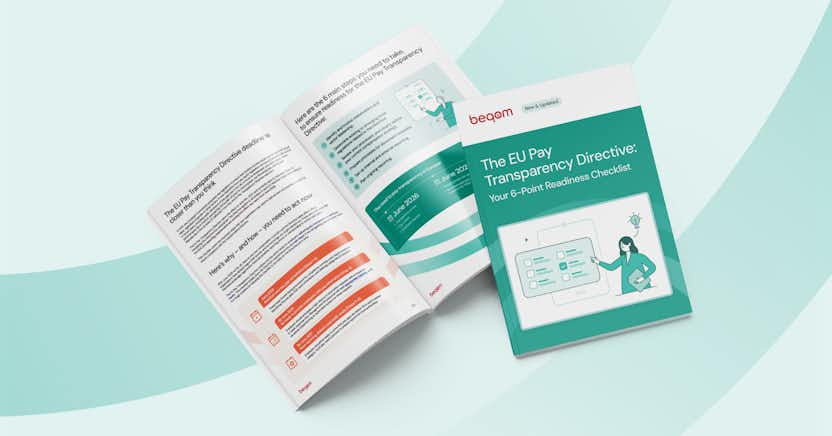Making Employees Happy: The Importance (and Limitations) of Money

Learn more about the following beqom products
The notion that money doesn't buy happiness has been around for a long time. The Beatles sang in 1964 that “money can’t buy me love.” In his landmark 1974 book Working, Studs Terkel interviewed working folks and concluded that work “is about a search, too, for daily meaning as well as daily bread, for recognition as well as cash, for astonishment rather than torpor.”
In a post-COVID world where workers seem to be re-evaluating their options, and in some cases not returning to their jobs, will paying more make a difference? Do workers want meaningful work or more money?
Even before COVID, the majority of workers (35%) ranked meaningfulness as the most important factor in on-the-job happiness, according to a 2019 CNBC/SurveyMonkey Workplace Happiness poll. That was followed by salary (20%), autonomy (18%), opportunity (15%), and recognition (12%). A Harvard Business Review study in 2018 found that 9 out of 10 employees were willing to trade a percentage of their lifetime earnings for greater meaning at work.
Money isn’t everything, but it’s something
Clearly money isn’t everything, yet no one would dispute its overall importance to human wellbeing. Those with income sufficient to cover basic needs like food and shelter are happier than those who are not earning a living wage. But there is no direct correlation between money and happiness. In a famous 2010 study, researchers at Princeton University surveyed adults in the United States and found that, up until an income of somewhere between $60,000 and $75,000 (in 2010 dollars) more money was associated with happiness, even if only a little bit. But beyond that range, the correlation drops off. It seems that a certain amount of money is needed to fix basic life problems that can cause stress and unhappiness: ability to pay your bills, keep the car running, and so on.
In fact, a 2018 study from Purdue University, using broader data from the Gallup World Poll, found that when people earned more than $105,000, their happiness levels actually tended to decrease. “At the end of the day, we’re humans and we struggle with existential issues like what’s the meaning of life, and who am I?” says Brad Klontz, a financial therapist and psychology professor at Creighton University. “And those sorts of questions don’t go away when you get a bunch of money.”
Happiness isn’t everything, either
So can we conclude that people don’t care about money after a certain income level? Not exactly. While money may not equate to happiness, it does have a bearing on how people feel about their success in life, their security, and their sense of control. That means that money is still important to people, even if it is not making them happier. So says some new research from the Wharton School of Business at the University of Pennsylvania. According to Matthew Killingsworth, a senior fellow at Wharton and author of the study, money grants people autonomy in how they live their lives. Killingsworth’s research shows that there’s no dollar-value plateau at which money’s importance lessens.
During the Covid pandemic, income could matter a bit more for people’s happiness, Killingsworth says. “For example, if you have a financial cushion, you’ll be more able to ride out a period of unemployment, and if you have a high-paying job, perhaps it’s more likely you’ll be able to work from home and keep your job in the first place, all of which would give you more agency over your life,” he says.
Of course employees want to earn more money over time, but that is not just ambition for greater material wealth, it also reflects the fact that the cost of living inevitably continues to increase.
So what’s an employer to do?
What does this mean for employers who need to attract and retain talent? Presumably employees will take a job, or keep one, if it fulfills their needs as well as or better than the next available alternatives. Happiness may be a factor, but it’s not the only one. Giving employees what they feel is important may be more to the point. Complicating that approach is the fact that not every employee wants the same thing. What a Gen Z worker wants may not be the same as a Gen Xer or Boomer.
Companies need to think about how they can address the overall changing nature of work and revamp rewards programs to support the evolving needs of a broad range of employees. To deliver an effective rewards program requires a mature rewards strategy and a capable compensation management system. And that can be supplemented with employee recognition software. To learn more about how beqom can help you make your employees happy and become an employer of choice, contact us for a demo or chat.







